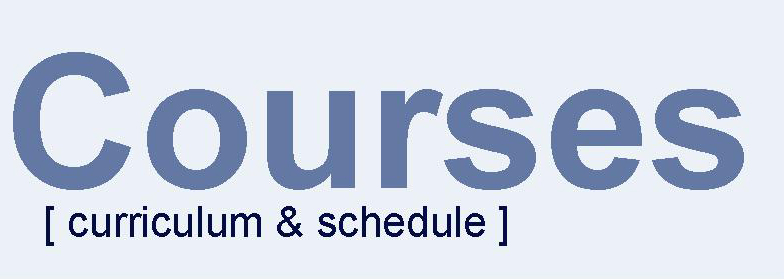
"
Writing correct programs is hard; writing correct
concurrent
programs is harder. There are simply more things that can go wrong
in a concurrent program than in a sequential one.
" (Brian Goetz)
Today, even the smallest computing devices run on at least two or four
processors; server software is deployed to hardware with 8 or 16 cores,
and the number of processors on each chip will continue to increase in
the years to come. While we handle a couple or a few dozens of cores today,
we will face the challenge of dealing with hundreds of cores in the future.
As a result, single-threaded programs are a fossile of the past.
Concurrent Java programs with multiple threads are the norm and the expectations
regarding performance and scalability are rising.
Not only are concurrent Java programs required to run in a predictible,
stable and reliable fashion in a multi-core or multi-cpu environment, in
addition concurrent Java programs are required to exhibit excellent runtime
performance and scalabilty. Ideally they should adapt easily and automatically
to increasingly powerful multi-processor hardware.
To meet these goals, Java programs must be thoughtfully engineered to
run across multiple cores- The most common method Java programmers have
for doing that is keeping track of individual threads and synchronizing
access to shared data by means of locks. Consequently, the seminar
provides insights into management of multiple thread - individually or
by means of various types of thread pools. The course also discusses
at length the traditional shared mutable state concurrency, i.e., synchronization
via locks and thread safety, along with its issues such as deadlocks, starvation,
etc.
The traditional synchronization via locks introduces various performance
impediments. For this reason, less expensive alternatives need to
be considered; they are available via volatile and atomic variables.
In order to enable participants to optimize the performance of critical
operations, the seminar covers the Java memory model and the guarantees
it provides for volatile, final, and atomic variables, which are needed
for developing lock-free algorithms.
Recent additions to the JDK / JVM offer abstractions for modern concurrent
programming styles beyond classic threads and thead pools:
asynchronous result retrieval and reactive fluent programming (via the
CompletableFuture API)
synchronous thread-per-task programming (via virtual threads).

In essence, this is the most comprehensive seminar on Java concurrency.
It covers every aspect of concurrent programming in Java relevant to practicing
Java programmers - from the fundamental problem of race conditions to the
principles of lock-free programming.

|
Prerequisite Courses
and Skills:
|
Basic knowledge of Java (introductory course
or equivalent practical experience). |
|
Duration:
|
4 days (can be extended to 6 days) |
The course is for Java programmers who intend to build concurrent applications
for multi-core or multi-cpu platforms.

The
most comprehensive and up-to-date Java Concurrency seminar world-wide.

While the excellent book "Java Concurrency in Practice"
by Brian Goetz is recommended reading, the course not tied to the book.
The seminar existed long before "Java Concurrency in Practice" was
written, covers all of the book content, and goes beyond it. Different
from the book and in addition to it, the seminar provides in-depth coverage
of the Java memory model (including hands-on labs) and explains the latest
JDK concurrency extensions such as the fork-join framework, StampedLock,
@Contended, CompletableFuture (all including hands-on labs and performance
benchmarks), virtual threads, and structured concurrency.
OBJECTIVES

|
Understand concurrency control issues in general |

|
Know the instruments available in Java |

|
Avoid common errors and pitfalls |

|
Understand concurrency control idioms |

The course is designed by Klaus Kreft & Angelika
Langer and backed by years of experience in teaching and more than a decade
of practical experience in industrial software development both in C++
and Java.
 Angelika Langer
is a freelance trainer/consultant in the area of software
development in C++ and Java, author of language reference material such
as the Java Generics FAQs [
Angelika Langer
is a freelance trainer/consultant in the area of software
development in C++ and Java, author of language reference material such
as the Java Generics FAQs [
 ],
the Lambdas/Streams Tutorial & Reference [
],
the Lambdas/Streams Tutorial & Reference [
 ],
and countless articles on C++ and Java topics [
],
and countless articles on C++ and Java topics [
 ].
].
 Klaus Kreft
is a senior consultant for more than 30 years and has served
as the lead architect and performance expert on several successful industry
projects. He has been working in Java since its advent in 1995.
Klaus Kreft
is a senior consultant for more than 30 years and has served
as the lead architect and performance expert on several successful industry
projects. He has been working in Java since its advent in 1995.
 Both are recognized speakers at OO and Java conferences and author of numerous
articles on C++ and Java topics in various computer magazines worldwide.
Together they write a column for the German Java magazine JavaMagazin
[
Both are recognized speakers at OO and Java conferences and author of numerous
articles on C++ and Java topics in various computer magazines worldwide.
Together they write a column for the German Java magazine JavaMagazin
[
 ]
and are authors of the books "Standard C++ IOStreams and Locales"
(2000) [
]
and are authors of the books "Standard C++ IOStreams and Locales"
(2000) [
 ]
and "Java Core Programmierung" (2011) [
]
and "Java Core Programmierung" (2011) [
 ],
the Online FAQ on Java Generics [
],
the Online FAQ on Java Generics [
 ],
and the Lambdas/Streams Tutorial & Reference [
],
and the Lambdas/Streams Tutorial & Reference [
 ].
].

|


